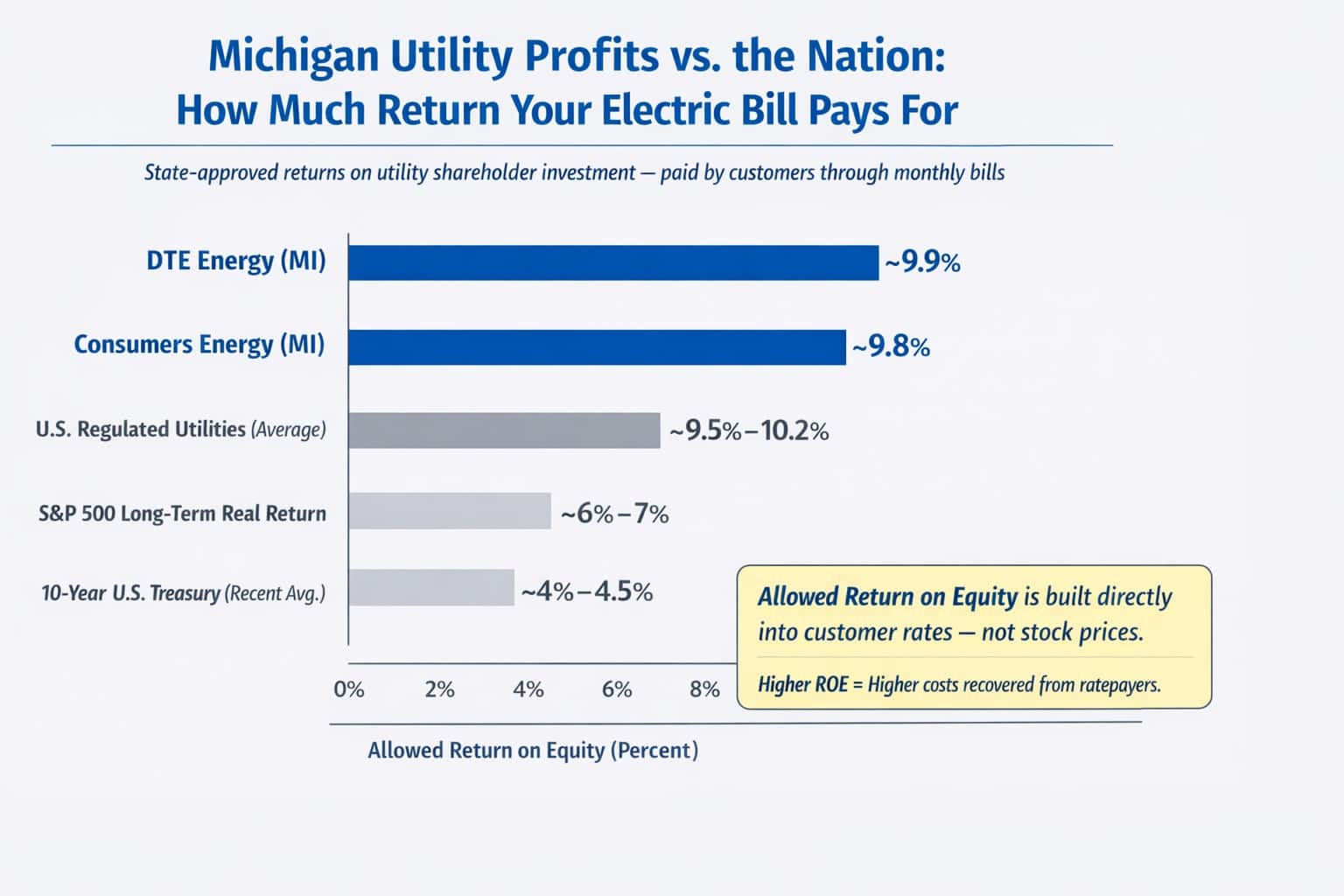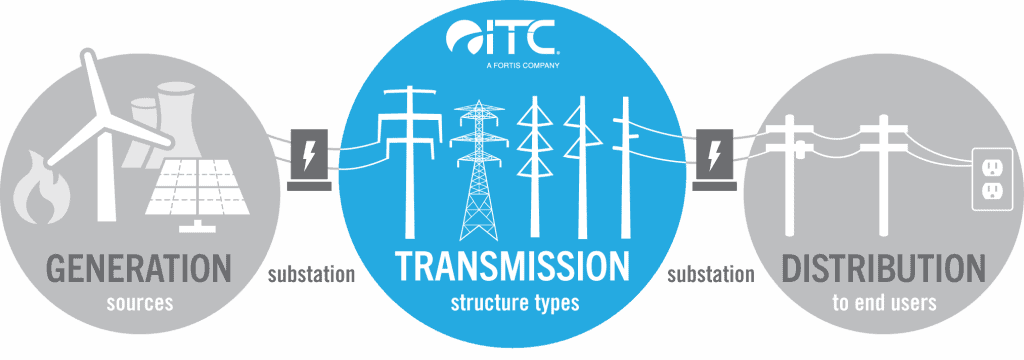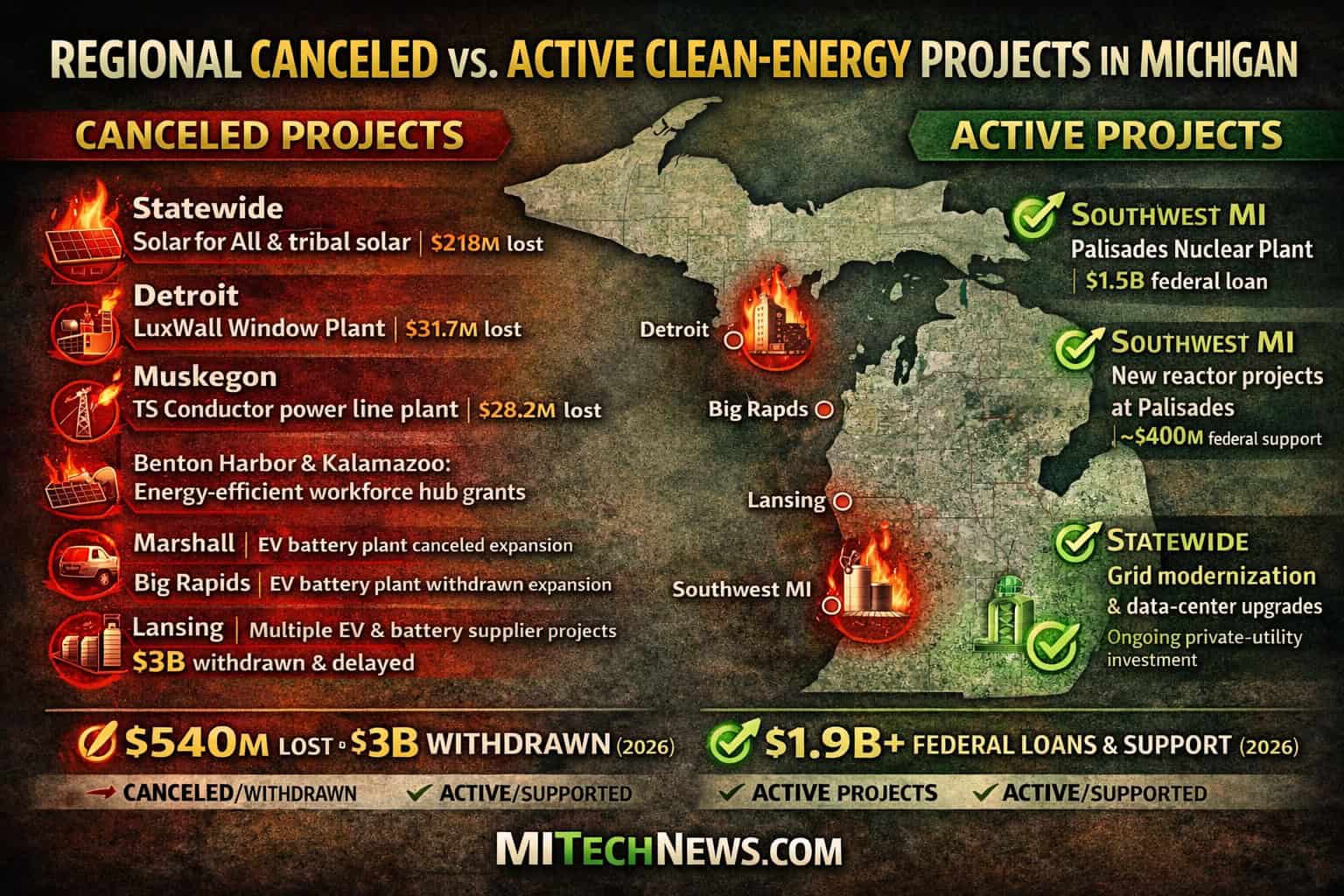LANSING – Electric choice advocates were largely disappointed with the final report issued on the subject by the Public Service Commission and Michigan Energy Office, saying it complicates the concept and does little to highlight the fact that Michigan has the highest electric rates in the Midwest for residential, commercial and other service bases.
“If you look at the data that’s actually submitted in the report, the data makes the case for why choice is for residents of Michigan,” said Wayne Kuipers, spokesperson for Electric Choice Now, in a press call Wednesday. “A lot of the words and how they’re used in the report tend to skew toward the utilities and that’s unfortunate because we’re not giving the governor and the Legislature a true representation of the facts.”
Few changes were made from the draft report the PSC and the Energy Office issued in mid-October, and the report did not make recommendations as has been the policy for all of its issued reports stemming from a series of public forums on energy policy earlier this year. The final report issued Wednesday is to be sent to Governor Rick Snyder for review before he gives a special message on the future of the state’s energy policy, likely to be in mid-December.
“Michigan’s hybrid electric choice structure is unique in the nation,” John Quackenbush, commission chair, and Steve Bakkal, energy office director, said in a joint statement. “As a result, it exhibits characteristics of both a regulated and deregulated electric market.”
The report notes that both regulated systems and competitive markets pose challenges. Competitive markets may lead to efficiency gains, it states. However, in a regulated system, the regulator’s objective is to simulate the efficiency gains that in other markets are realized from competitive pressures, the statement said. Competitive markets may lead to increased price volatility and may lead to long-term challenges in reliability if the market is unable to encourage new generation, signal the need for large investments that take many years to pay back and may hinder the ability to finance the investments, it said.
“Michigan cannot necessarily compete … with other states when you look solely at energy,” said Bob Strong, representing the Association of Businesses Advocating Tariff Equity, in the press call with Mr. Kuipers. “We need to do something about that.”
And Rick Coy, also representing ABATE, added: “We were hoping for some degree of critical analysis. Instead, what we have is the utilities say the moon is made of green cheese” and no information to back that up, he said. “The critical analysis of some of the weakest points is simply not there.”
The report released Wednesday includes additional material on choice participation, customer savings, and the impact of the choice change on the financial stability of utilities, the commission noted. And it includes more material on rate levels in deregulated versus regulates states, as well as rate volatility and pricing stability.
The increasing debate over choice comes as Snyder and the Legislature are expected to address some of the expiring mandates in PA 286 of 2008, which essentially served as an energy law overhaul for Michigan. With regard to electric choice, it mandated that “no more than 10 percent of an electric utility’s average weather-adjusted retail sales for the preceding calendar year may take service from an alternative electric supplier at any time,” with one exception for an iron ore mining or processing facility to elect an alternative supplier of electricity.
But Steve Transeth, senior policy director for the Michigan Jobs and Energy Coalition – which does not favor a deregulated market – said recently that he does not expect Mr. Snyder will give any recommendations on electric choice. Instead, the Legislature will spend time debating the issue to determine the best course for Michigan.
Kuipers on Wednesday said that while he could not speak for what Snyder might say next month, “It would seem to me that if he’s going to give a special message, he highlights the fact we have a problem here in Michigan, and it would be nice if he lay out a path forward. … I think you miss an opportunity if you don’t lay out a path forward.”
One route, choice advocates argued, is perhaps to increase the 10 percent cap the state currently has. Electric Choice Now spokesperson Maureen McNulty Saxton said there are more than 11,300 people waiting for service from an alternative energy supplier – “in the queue” as it is referred to – but the group believes that is “not an accurate demand of choice in this state” given the process involved to be in the queue. It was estimated the cap would have to be raised to about 25 percent to meet the demands of those currently in queue, though the group shied away from giving a specific number it believes the state should follow.
But Transeth, responding on Wednesday to a question on raising the cap, said: “Everybody who looked at that … said the hybrid model just doesn’t work. It picks winners and losers.” He said other than a few states like California or Virginia which have allowed “limited class participation … by and large, the hybrid system has never worked and Michigan is the only one that has quite this kind of system.”
The next report set to be issued by the PSC and the Energy Office on November 26 will address energy efficiency.
This story was provided by Gongwer News Service. To subscribe, click on Gongwer.Com






